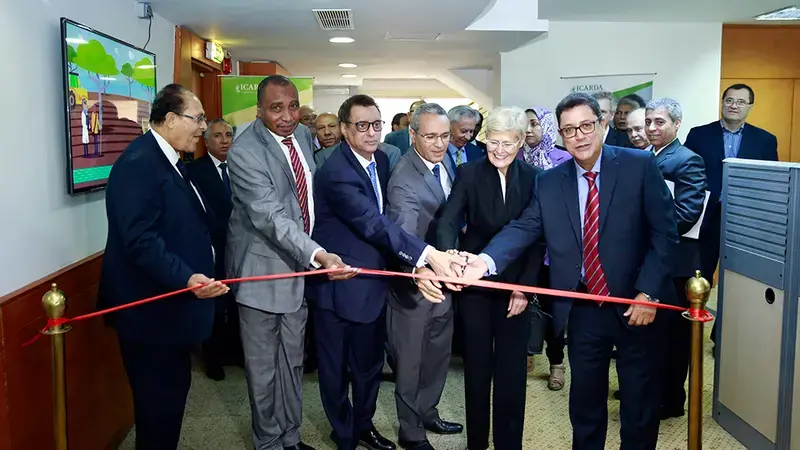ICARDA strengthens commitment to Egypt’s resource-poor farmers

ICARDA has consolidated its presence in Egypt with the opening of a second office in Cairo. The Center has worked with Egyptian partners for several decades, and this new investment - part of the Center’s decentralization – will strengthen partnerships and enhance the delivery of new technologies and sustainable solutions to Egypt’s resource-poor farmers.
Collaborative research activities will help to strengthen the resilience of Egypt’s agricultural sector against multiple challenges such as climate change, water scarcity, and rising food import dependence. Outputs will include resilient and climate-smart varieties of strategic crops like faba bean and wheat, proven technologies that use water more productively, and sustainable land management practices.
“ICARDA has enjoyed a long and fruitful partnership with Egypt - stretching back to 1979,” says ICARDA’s Director General, Mr. Aly Abousabaa. “We are now building on this legacy to help strengthen the resilience of the country’s agricultural sector and resource-poor farmers, enhancing their access to improved crop varieties and innovative technologies and solutions, which have the potential to raise productivity against a backdrop of rising temperatures and water scarcity.”
Enhancing research and support functions
ICARDA’s enhanced presence in Egypt combines research and support functions. A research team will serve both ICARDA's Nile Valley and Red Sea Regional Program, which strategically aligns research activities with Sudan, Eritrea, and Yemen, and a new thematic research platform for sustainable intensification in irrigated systems. Support staff, including those from finance, communications and donor relations, will serve ICARDA’s strategic priorities in Egypt and internationally.
“ICARDA’s move to Egypt is a strategic choice complementing its research programs in other parts of the region,” says Margret Thalwitz, ICARDA’s Board Chair. “Egypt offers opportunities in water resource management unique to the dry areas and ICARDA wants to harness this knowledge in close collaboration with its Egyptian partners for the benefit of the country’s farmers and far beyond.”
Further collaboration with Egyptian partners like the Agricultural Research Center (ARC), the Ministry of Agriculture and Land Reclamation, and the Agricultural Genetic Engineering Research Institute (AGERI) will enhance the development and distribution of resilient strategic crop varieties like wheat, barley and faba bean; improve on-farm water and land productivity; and strengthen the performance of livestock and wheat-based production systems.
“We welcome ICARDA’s decision to expand its operations in Egypt,” says Dr. Mahmoud Medany, Director of ARC. “ICARDA’s strategic direction complements our own: prioritizing the development of new technologies and solutions that will help Egypt’s farmers prosper while strengthening their adaptation to climate change. We look forward to more collaborations and an even stronger partnership over the coming years.”
